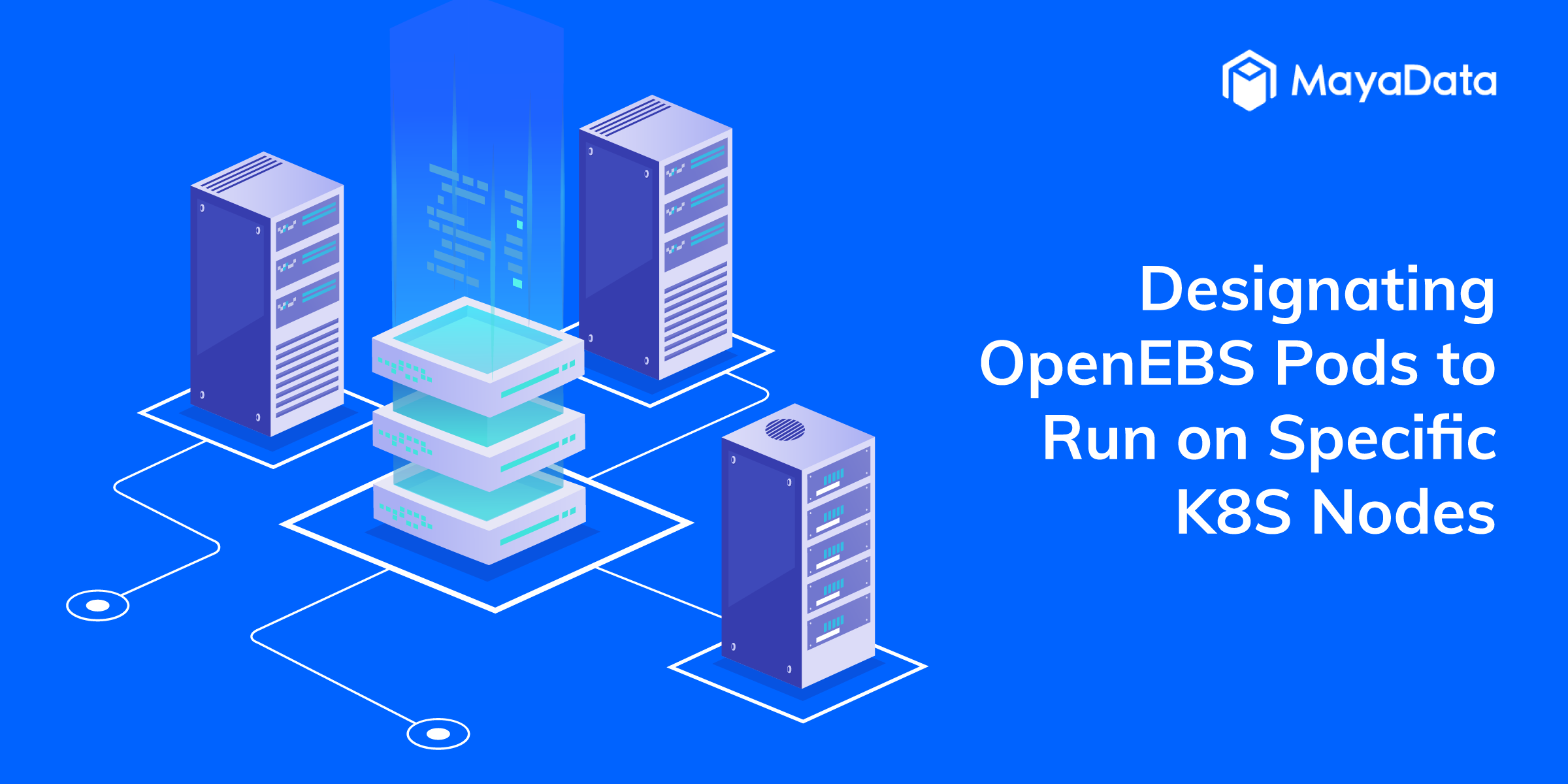OpenEBS does not have a separate scheduler used to manage scheduling pods. Instead, it uses the Kubernetes scheduler for managing the scheduling needs of an administrator. Kubernetes provides the following methods for controlling the scheduling pods on cluster nodes:
For more details and information about these features, you can refer to the Kubernetes documentation.

In this post, I would like to cover the different aspects of how to restrict/control the OpenEBS pods scheduling to a set of specific nodes in the Kubernetes cluster.
OpenEBS deals with many types of Kubernetes pods throughout its life cycle. These can be broadly categorized into two types, control plane pods and data plane pods. Control plane pods are installed as part of installation of the following OpenEBS components:
- OpeEBS API Server
- OpenEBS Provisioner
- OpenEBS Snapshot Controller
Data plane pods are installed as part of volume provisioning:
- Target Pod
- Replica Pods
For details on the exact steps of scheduling, see the configuration section here.
Use case: Let’s consider a scenario in which you have 20 nodes named Node1, Node2 ... Node20. You may want to designate Node1, Node2, Node3 as storage nodes so that all storage pods are scheduled only on these nodes.
Solution: You can use Kubernetes scheduling methods to achieve this. Below are some of the possible options and their effect on scheduling pods to respective nodes.
.png?width=550&name=image1%20(2).png)
You may select and use any of the above options based on your unique requirements.
Option 2 does not necessarily guarantee storage pod scheduling on Node1, Node2 and Node3.
Option 1, Option 3, and Option 4 will limit the scheduled OpenEBS pods to Node1, Node2 and Node3. Option 3 is my preferred choice, for the following reasons:
- Other application pods will not be scheduled on my storage nodes, whereas Option 1 does present the possibility of other application pods being scheduled on Node1, Node2, and Node3.
- While scaling the cluster for application deployments, I do not have to worry about changing the policy for storage. If I use option4, I must taint the new nodes with respective applications.
- In this scenario, I am worried only about storage nodes, as these have local disks attached to them. I am not restricted to schedule an application pod deployment on any nodes other than storage nodes.
This article was first published on Jul 31, 2018 on OpenEBS's Medium Account






Game changer in Container and Storage Paradigm- MayaData gets acquired by DataCore Software
Don Williams
Don Williams
Managing Ephemeral Storage on Kubernetes with OpenEBS
Kiran Mova
Kiran Mova
Understanding Persistent Volumes and PVCs in Kubernetes & OpenEBS
Murat Karslioglu
Murat Karslioglu